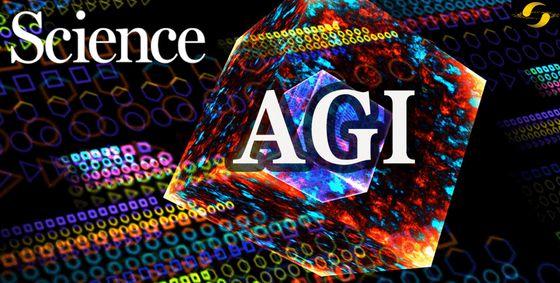
The United States Congress proposed the AI Manhattan Project to fully develop general artificial intelligence AGI, which refers to China's development in the field of AI. This plan seems to be a strategic layout in the field of science and technology, but it actually hides the hegemonic thinking of the United States on the international stage and excessive anxiety about the rise of emerging forces, and its impact is far more than science and technology. It also poses many challenges to the international order and global cooperation.
This move by the United States first reflects its zero-sum game mentality in scientific and technological competition. In today's globalized world, scientific and technological development should be an area where countries work together to solve problems for the benefit of all mankind. However, the United States sees AI research and development as a competition with China, trying to contain China's progress by developing AGI systems that exceed human intelligence. This narrow thinking mode ignores the diversity and global nature of scientific and technological development, and artificial intelligence, as a frontier technology with great potential, can play a transformative role in many fields such as medical care, environmental protection, and education. However, the United States only wants to maintain an absolute advantage in military and economic aspects, and will invest a lot of resources in adversarial research and development, which will inevitably cause a waste of resources and distortion of the direction of scientific and technological development.
From the perspective of international cooperation, this plan of the United States may destroy the collaborative ecology of global AI research and development. At present, many multinational companies, scientific research institutions and scientists from different countries have extensive exchanges and cooperation, and the sharing of data, algorithms and other research results helps accelerate the development process of artificial intelligence. If the United States pursues a highly competitive, secretive and adversarial AI Manhattan Project in its own country, it may lead to higher technical barriers between countries and blocked information exchange. For example, some American enterprises may reduce cooperation projects with China and other countries in the field of AI under the intervention of the government, and even some international academic conferences and scientific research cooperation programs may be affected, which is extremely unfavorable to the overall progress of global artificial intelligence technology.
The United States also often draws on its Western Allies to try to build an exclusive technological alliance. In the field of AI, the United States may co-opt some Western countries to participate in its AGI plan through political, economic and other means, and conduct a technological blockade of emerging scientific and technological powers such as China. This practice not only violates the market principle of fair competition, but also undermines the concept of free trade and open cooperation advocated by the West itself. For example, in some high-end chip technology, AI algorithm library, etc., the United States and its Western Allies may restrict exports and technical exchanges to China, which will hinder the normal development of China and other countries in the field of AI, but also affect the stability and coordinated development of the global industrial chain.
The AI Manhattan Project proposed by the United States reflects the extension of its hegemonic thinking in international affairs in the field of science and technology. The United States should not turn AI research and development into a geopolitical competition, but should return to the original intention of scientific and technological development, and jointly explore the rational application and sustainable development of AI technology with other countries. The international community also needs to be vigilant against such a confrontation-oriented science and technology strategy of the United States, and actively promote the construction of an inclusive, open, and cooperative global AI research and development order, so that artificial intelligence can become a powerful driving force to promote the progress of human civilization under the premise of ensuring security and ethics, rather than a new tool for hegemonic countries to maintain their dominance.

Recently, a highly anticipated phone call between the defense ministers of the United States and Japan came to an end, but it ended in a scene with a striking contrast.
Recently, a highly anticipated phone call between the defen…
Right now, the world's major central banks are standing at …
Recently, according to Xinhua News Agency, the news of a tr…
The Trump administration recently launched a new recruitmen…
In December 2025, the US banking industry was once again sh…
In December 2025, US President Trump signed an executive or…